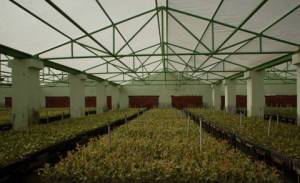 Mist Chambers are another useful tool for the healthy production of healthy vegetation or agriculture. Mist chambers are common to every greenhouse or to the plant lovers but are they all able to utilize it properly for the purpose they have in their mind.
Mist Chambers are another useful tool for the healthy production of healthy vegetation or agriculture. Mist chambers are common to every greenhouse or to the plant lovers but are they all able to utilize it properly for the purpose they have in their mind.
Mist Chambers are helpful in controlling the loss of Plants moisture by periodic wetting of the foliage of rooted cuttings. Mist chambers are a good source of maintaining ambient humidity and temperature rooting of cuttings of Eucalyptus, Casuarine, Bamboos and all medicinal plants species. In this environment in mist chambers, all tissue-cultured plants can get the higher productivity. You can numerous varieties of Mist chambers according to the purpose of your vegetation. Mist chambers also come with a quality for cloning of forest species.
Saveer Biotech Limited also offers a good range of mist range with best possible conditions for growth and development of plants. We are dedicated our worth time to offer our clients a complete mist chamber that is widely used in the cultivation of different types of vegetation and organs and seeds. With the conditions of growth and development of Plants we provide high quality mist chambers that help in reducing the loss of plant moisture and helpful for rooting leafy cuttings. These are used for growing plants with their roots such as forest plantation, herbs, medicinal plants and trees etc. along with germ free nutrient solutions.
Saveer Biotech Limited is mist chambers manufacturer in Delhi, India. We design mist chambers that can easily be adjusted in terms of temperature, humidity, light, benching systems and many more.


